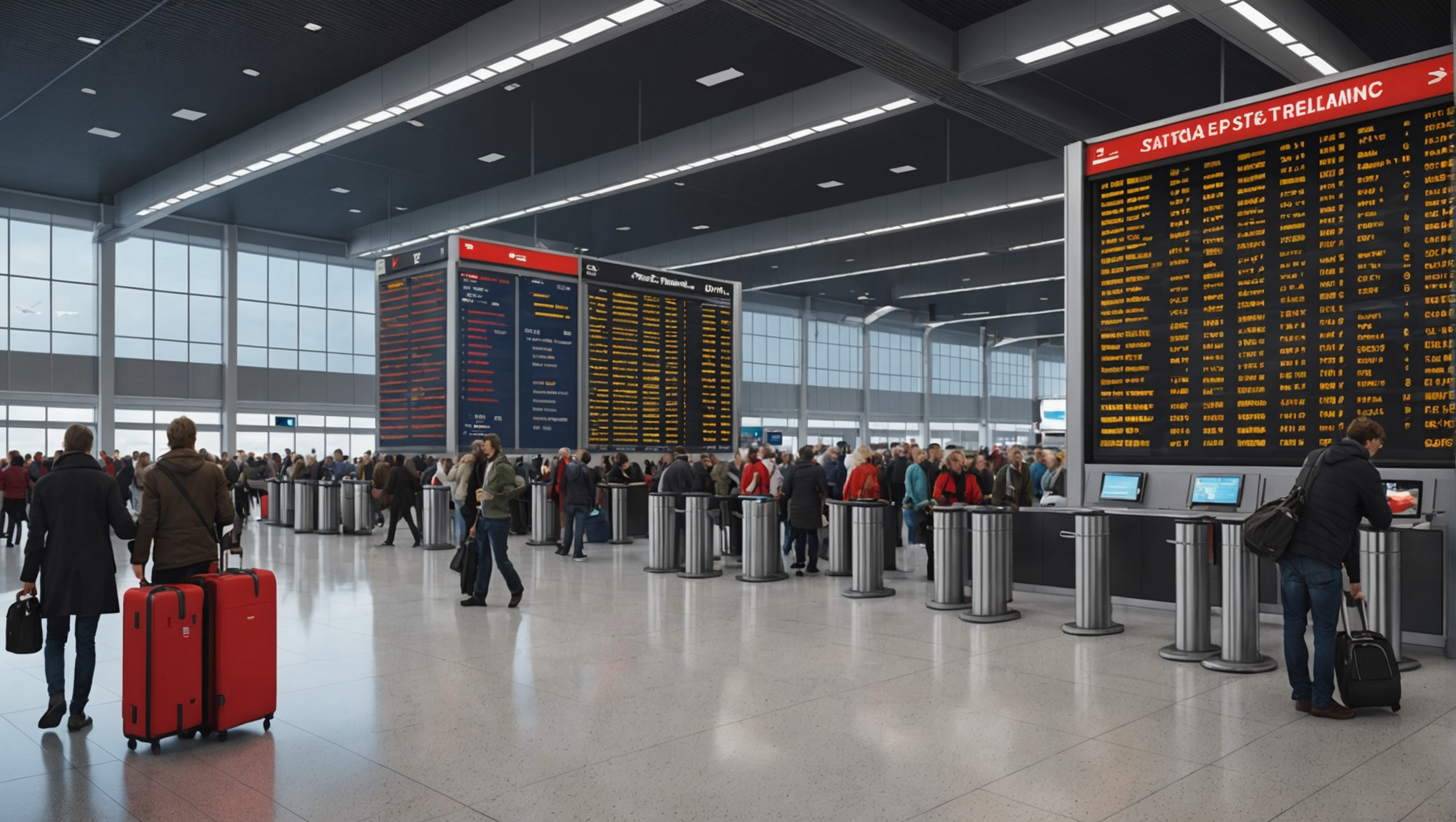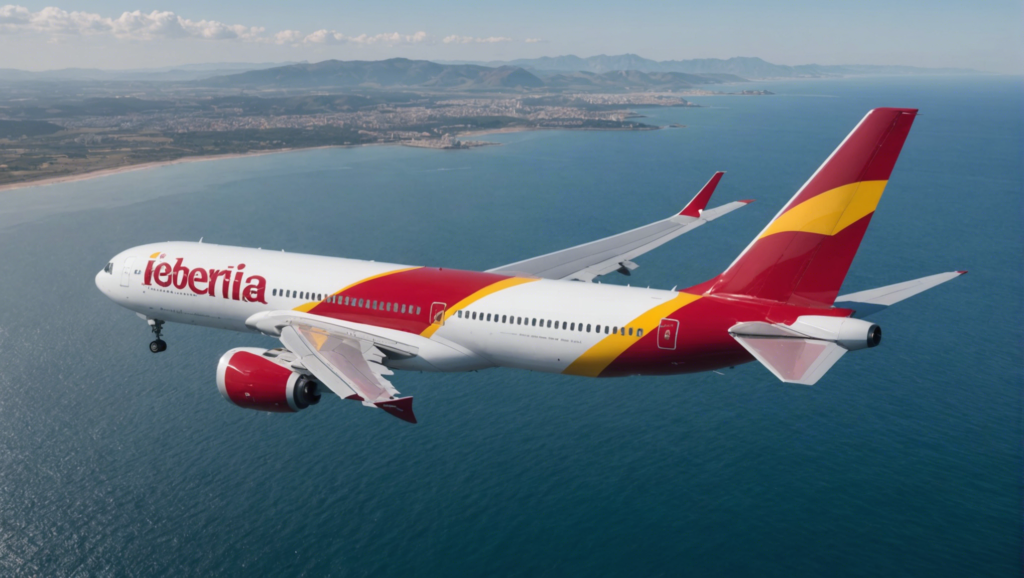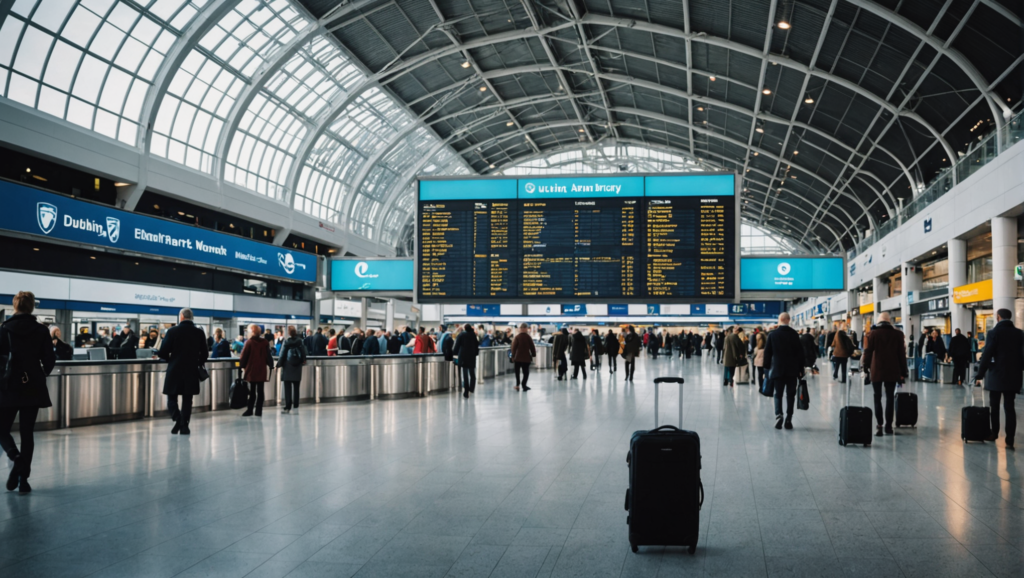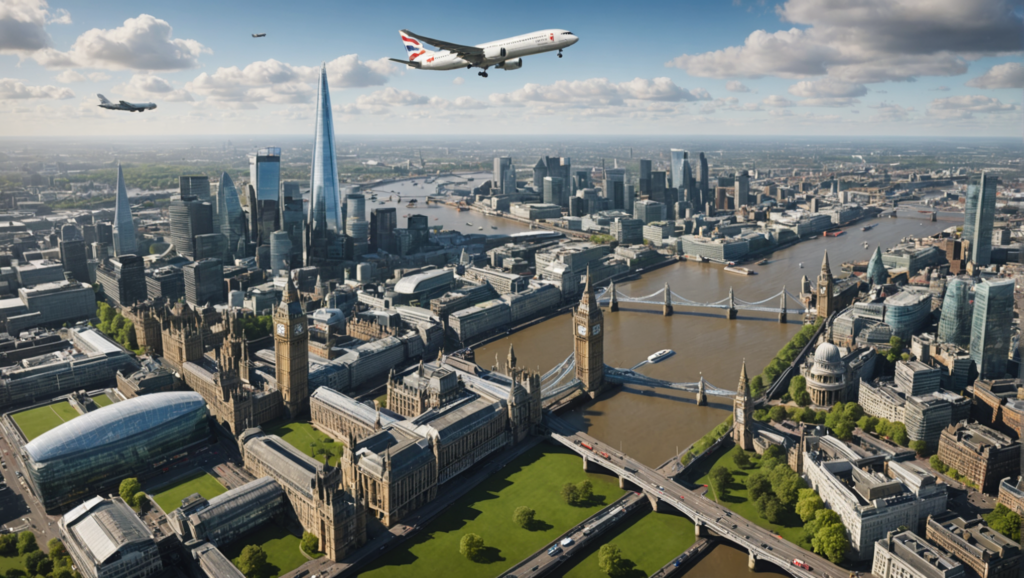Summer has brought its share of difficulties for SWISS, with only 64% of its flights keeping to schedule. This delicate situation is mainly due to the saturation of air traffic control in Europe, resulting in delays and disruptions for many travellers.

This summer was a particularly difficult one for SWISS, Switzerland's national airline. In fact, only 64 % of flights on schedule, mainly due to the fact that the company's saturation of air traffic control in Europe.
Causes of Saturation
The main cause of this situation is the saturation of European airspace. The increase in the number of commercial flights has put enormous pressure on air traffic controllers. This overload led to numerous delays for airlines, including SWISS.
In addition, unpredictable weather conditions and strikes in several European countries exacerbated delays, making it even more difficult to keep to flight schedules.
Consequences for SWISS and its Passengers
The constant delays had numerous repercussions, both for the company and its passengers. Among the notable consequences:
- Customer dissatisfaction : Passengers dread delays, and this affects the company's image.
- Additional costs : SWISS often has to provide financial compensation and additional services to affected passengers.
- Constant reorganization : Ground and in-flight crews often have to adapt their schedules, which further complicates day-to-day operations.
SWISS efforts to remedy the situation
Faced with these challenges, SWISS has implemented several measures to improve the situation:
- Schedule optimization : The company regularly analyzes its schedules to limit delays as much as possible.
- Proactive communication : By informing passengers in real time of delays and changes, SWISS tries to minimize the impact on its customers.
- Working with the authorities : The company is working closely with air traffic control authorities to find sustainable solutions to airspace saturation.
Global impact on European aviation
The problem of air traffic control saturation affects not only SWISS, but the whole of European airspace. Long-term solutions require greater coordination and cooperation between the various air traffic control authorities and airlines.
In the short term, it is crucial for passengers to be aware of possible delays and to plan their journeys accordingly.
In Brief
The current situation represents a real challenge for SWISS and the entire European aviation sector. The key lies in cooperation and rapid adaptation to the growing needs of the airline industry.
| Positives | Negative points |
| Efforts to optimize schedules | Airspace saturation |
| Proactive communication with passengers | Unpredictable weather conditions |
| Working with the authorities | Additional costs for the company |
Ultimately, the challenge for SWISS is to strike a balance between delay management and passenger satisfaction, while navigating in an increasingly saturated airspace.
On the same theme
Iberia plans to offer unprecedented capacity between Europe and Latin America in 2024
Iberia aims to push back the frontiers between Europe and Latin America in 2024, with a new capacity that promises to bring the two continents even closer together. Get ready for an unforgettable travel experience...
Dublin: airlines plan to cut flights this winter due to passenger restrictions
Airlines including Aer Lingus and Ryanair are planning to reduce their flights between Dublin and other destinations this winter. This decision is influenced by the Covid-19 pandemic and the capping of air traffic at 32 million passengers...
London plans to force disclosure of flight carbon footprints for a greener future
The City of London is taking a stand in favor of environmental transparency by planning to require disclosure of the carbon footprints of flights. This measure is part of an effort to raise awareness and commitment to a more environmentally-friendly future. À...







